Vietnamese growers sentenced after being caught with massive ‘industrial’ cannabis crop at Ellangowan in northern NSW
Migrant workers busted tending a huge cannabis crop worth $30m in “industrial grow houses” in northern NSW were not paid a cent, with one grower apologising profusely to a court.
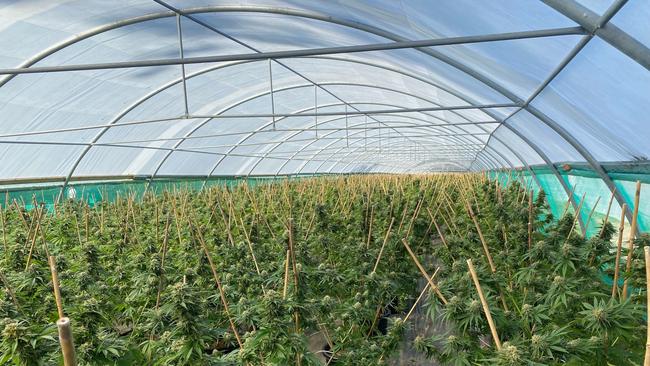
Regional News
Don't miss out on the headlines from Regional News. Followed categories will be added to My News.
Vietnamese workers busted tending a huge cannabis crop worth around $30m in rural “industrial grow houses” in northern NSW were not paid a cent, a court has heard.
Tien Van Hoang, 45, remains in custody while brothers Nam Ha Pham, 54, and Henry Pham, 51, are on bail along with Huu Lam Luong, 51.
The group are facing Lismore District Court for sentencing this week after pleading guilty to participating in a criminal group contributing to criminal activity and knowingly taking part in cultivating more than a large commercial quantity of a prohibited plant.
The men – who needed interpreters in court – have pleaded guilty after police uncovered thousands of plants at Ellangowan, near the state “beef capital” Casino in the Northern Rivers on November 4, 2022.
The court heard all men needed money to care for their families and had not been paid.
Investigators found and seized more than 8300 cannabis plants with an estimated potential street value of $40 million, however a prosecutor has provided a new estimation of $30 million to the court.
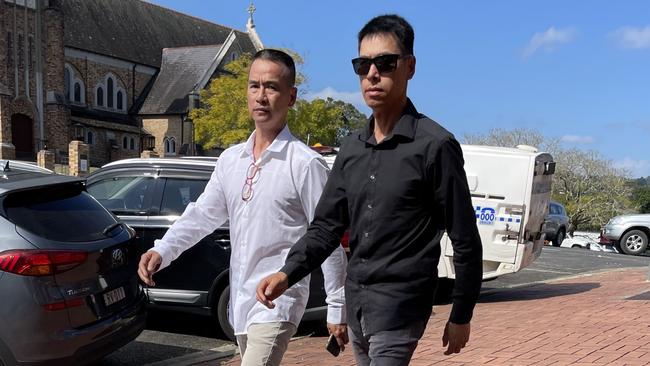
Hoang’s lawyer Susanna Dakin said he had been in custody since the arrest and was an illegal immigrant who came to Australia in 2012, with no prior convictions.
The offender began as a cleaner at the property before being accompanied by escorts to hire trucks, Ms Dakin said.
Ms Dakin said he did not receive the agreed $3000 payment per month.
A letter was read out by the interpreter in court outlining Hoang has two sons and moved to Melbourne in 2012.
“I was alone in this country far away from my family. I worked so hard I took every job I could to send money back to Vietnam to take care of my parents and children,” he wrote.
Hoang said he was asked to work on a farm and only found out later on it was a system of growing cannabis.
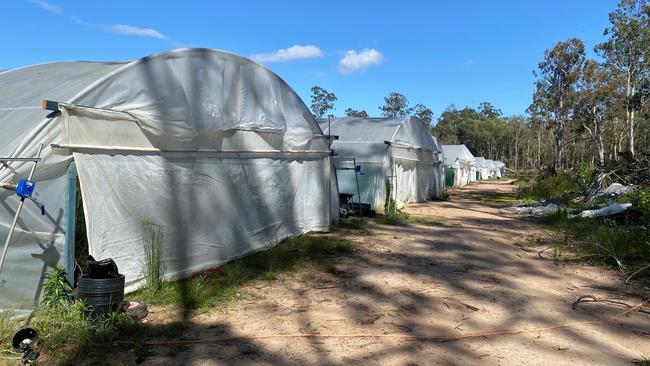
“I was so remorseful … I was so worried and nervous. I didn’t know what to do,” he wrote.
“I want to apologise from the bottom of my heart. Sorry to the community. I’m so sorry to this society, this country and my parents. I promise I will never be involved in legal activity again.”
Nam Pham’s lawyer Mr Khurana said Nam was periodically at the property for up to seven months where he did manual labour including clearing bush land.
“During covid, Nam struggled financially because he was supporting his family and an offer came to him which he accepted,” he said.
“The street value of the crops were $30m.”
The court heard Nam was offered $1500 and did not get paid.
Luong’s lawyer Mr Khurana said his client was responsible for maintaining a greenhouse tractor and carrying piping.
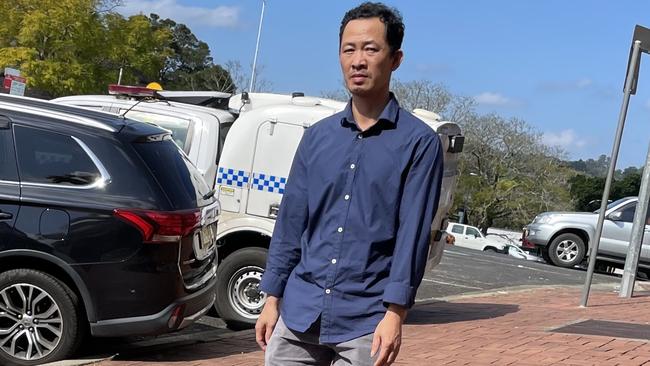
Luong told someone he needed money quickly and was not present when the others were arrested. He has spent 79 days in custody.
Mr Khurana said Luong was supposed to be paid a lump sum of $10,500 for the work, but has not been paid.
Henry Pham’s lawyer Mr Khurana said he visited the property three times and his phone was used to hire a truck and pick up vehicles.
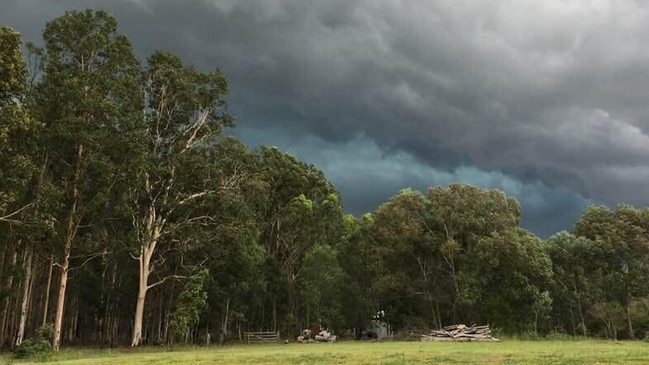
“He is just doing jobs, there’s nothing more than that,” he said.
“The higher-ups try to distance themselves from the grunt work. He was arrested at the crop site.”
Mr Khurana said Henry has a “gentle nature” and was previously bullied. His elderly mother also relies on him for care.
Henry faced financial difficulties during covid causing him to become depressed which subsequently led to the offending, Mr Khurana said.
Police prosecutor Mr Puentes said Nam and Henry are brothers and Luong is their brother in law.
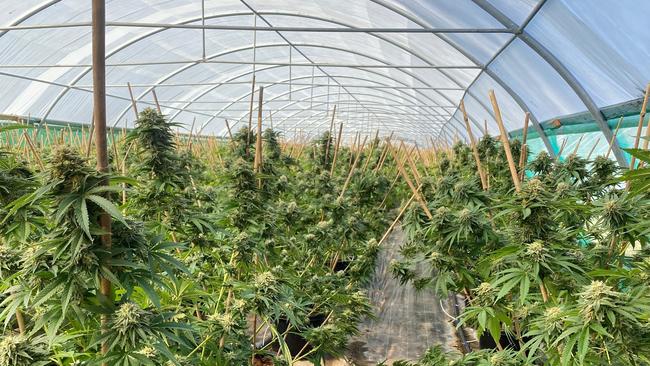
“They were willing to work for free for an extended period of time, whether they were paid or not is not contested,” he said.
This comes after co-offender Duong Ba Le pleaded guilty to participating in a criminal group contributing to criminal activity and knowingly taking part in cultivating more than a large commercial quantity of a prohibited plant.
The 33-year-old was sentenced in May to three years and nine months jail with a two-year non-parole period.
Judge Jonathan Priestley said some men were more involved than others and they had all been in custody for various time periods.
The case has been adjourned for sentencing on Thursday.




